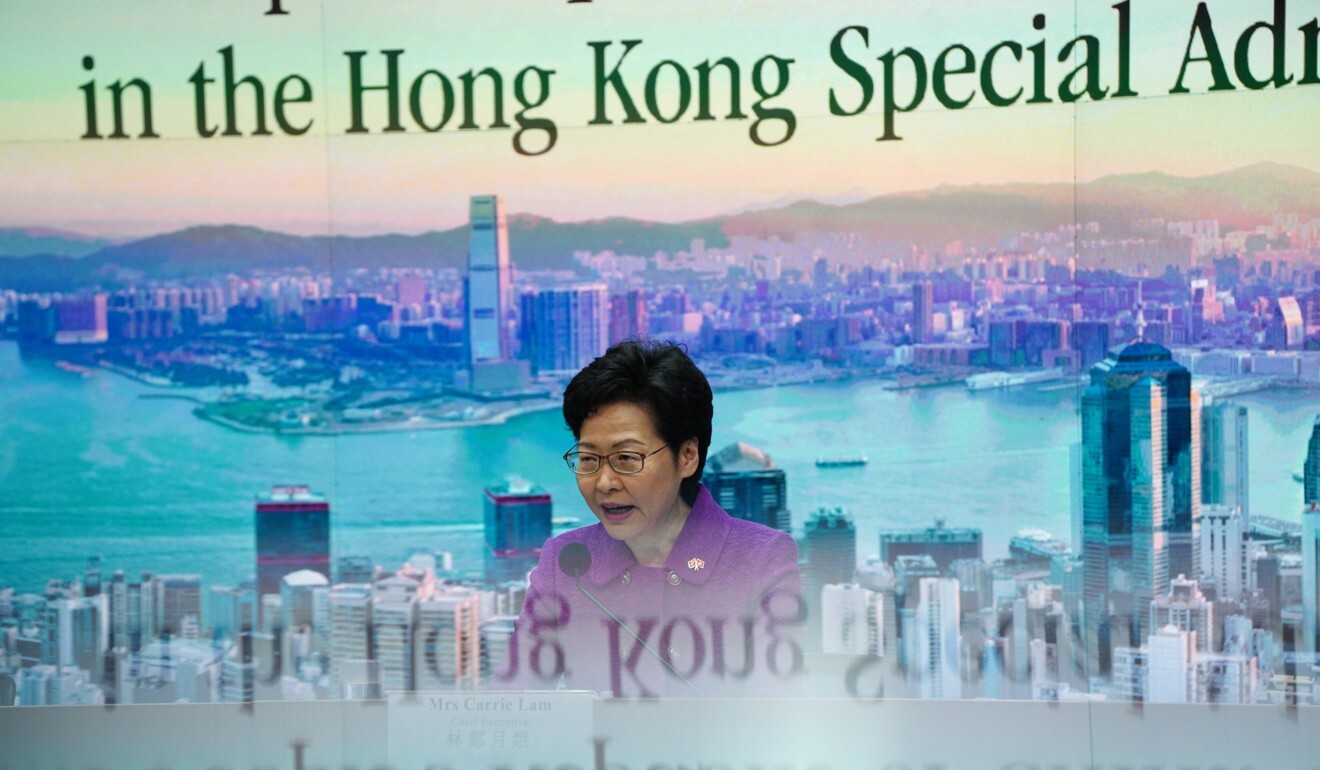
National security law: Hong Kong’s chief justice spells out his stance on how cases should be handled
- Geoffrey Ma also insists that foreign judges should not be excluded from hearing cases
- Top judge wanted to ‘state some general principles’ regarding designation of judges and operation of the courts under the new law
Hong Kong’s chief justice has spelled out his stance for the first time on how cases should be handled under the new national security law, stressing that the judiciary will have the final say on the choice of judges and rejecting political considerations.
Geoffrey Ma Tao-li also insisted on Thursday that foreign judges should not be excluded from cases, an assurance given earlier by the city’s leader which contradicted a senior Beijing official’s suggestion that rulings should not be tainted by “dual allegiance”.
But some senior legal figures accused the city’s top judge of failing to address real concerns – and even whitewashing grave implications – over a new arrangement that would clip his full power to tap judges in national security cases. Others praised the outgoing chief justice, who will retire at the start of next year, for defending judicial independence.
“It is inappropriate to comment on other aspects of the law,” the city’s top judge said.

03:25
Hong Kong police arrest 10 under new national security law
The government, meanwhile, released a statement late on Thursday suggesting that those displaying or possessing an object with the slogan “Liberate Hong Kong; revolution of our times” – commonly seen and heard during anti-government protests – could be breaching the new law.
Ma’s remarks were much-anticipated as there had been heated debate on a new power granted to the chief executive under the law to designate a pool of judges, as well as on issues relating to jury trials and open justice.
Carrie Lam’s top aide to head Hong Kong committee for security law
“This therefore means, for example, that judges should not be designated on the basis of any political considerations,” he said, adding that such a guarantee was also written into the Basic Law.
Hong Kong national security law full text:
Judges of foreign nationality were not excluded, Ma added. He said their presence – including the non-permanent members of the Court of Final Appeal who were top judges from other common law jurisdictions – was expressly stated in the Basic Law and their contribution “repeatedly acknowledged by the chief executive”.
Ma said that while the chief executive was vested with the new power to compile the list of judges for national security cases, all candidates were from the existing bench, to which they had been appointed by Lam on the recommendation of the Judicial Officers Recommendation Commission, a body comprised of senior legal figures, the secretary for justice and himself.
Even though the list was designated by the chief executive, Ma said, he and other leaders of various levels of the court were “solely” responsible for picking the judge to preside over a particular trial, as well as for the listing and handling of cases.

He also said that if judges were not chosen for the list for a particular term it did not mean they would be automatically found not suitable in the future.
“It is intended that once the term of designated judges comes to an end, other suitable judges may be designated,” he said, adding the arrangement would also apply to the top court’s non-permanent overseas judges.
“The independence of the judiciary and the rule of law are cornerstones of the Hong Kong community, and they are guaranteed under the Basic Law. It remains the mission and the constitutional duty of the Hong Kong judiciary to maintain and protect them.”
China threatens ‘corresponding measures’ after UK offer to Hongkongers
Human rights lawyer Mark Daly defended Ma, saying the chief justice should not be put in a position where he had to flex his muscles.
“The bigger concern is how judges in our developed justice system will interpret these broad and vague concepts from an incompatible system,” he said.
Senior counsel Ronny Tong Ka-wah said it was appropriate for Ma to clarify that judicial independence would not be undermined by the new arrangement. “I welcome his remarks,” he said.
But a senior legal figure, who spoke on condition of anonymity, argued that Ma had failed to express any reservations.
“This is a whitewash,” the source said. “There is no safeguard. There is no requirement to consult the chief justice [on judges], only discretion to do so. She [the chief executive] may choose not to consult.”
The source said there was nothing to prevent the city’s leader from factoring in issues such as whether the judge had a record of ruling in the government’s favour.
The part of the law which allowed the city’s leader to consult the Committee for Safeguarding National Security was also worrying, the source said.
Another senior counsel said Ma had been sidelined as he was never consulted about the new law but the chief justice had offered no response on that.
Chinese University political scientist Dr Ma Ngok said the top judge may have felt the need to state the city’s legal principles after believing the new arrangement had “crossed his line”.
In its statement on Thursday night, the government said there were people who had joined illegal and violent activities and displayed or possessed items with the words “Liberate Hong Kong; revolution of our times” during protests on Wednesday against the new law.
It said the slogan connoted independence, or separating Hong Kong from the People’s Republic of China, and the government firmly denounced any act that blatantly challenged national sovereignty, unity and territorial integrity.
The national security law prohibited acts of secession and subversion of state power, the government said. It called on members of the public not to break the law.

